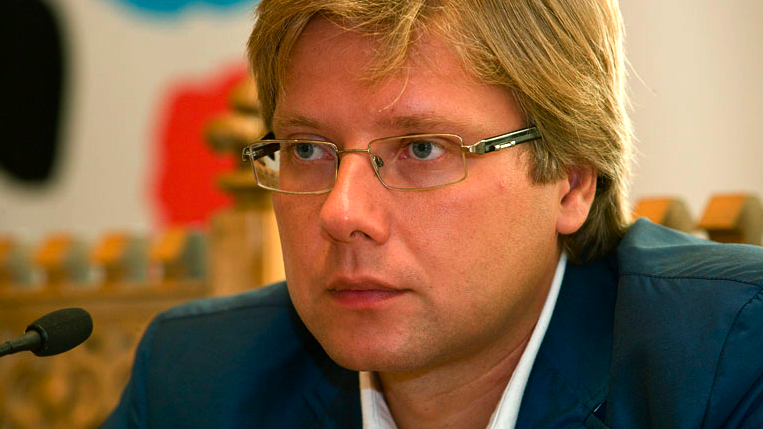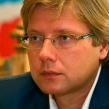
Latvian Language Wins Referendum While Russian Party Shows Nuisance Potential
Publication: Eurasia Daily Monitor Volume: 9 Issue: 36
By:

As arithmetically predetermined, the nays handily prevailed over the ayes in Latvia’s constitutional referendum on instituting Russian as a parallel state language in Latvia. The Russian party, Harmony Center, triggered this referendum in the knowledge that it could only lose, aiming however to demonstrate its nuisance potential after being left out of Latvia’s government (see EDM, February 15, 17).
The final results of the February 18 referendum (LETA, February 20) show that 74.8 percent of voters rejected the proposed constitutional amendments, while 24.88 percent voted in favor. Reflecting intense political mobilization on both sides, voter turnout was 71.1 percent – the second-highest turnout since 1993, when the restored Latvia held its first post-Soviet parliamentary elections. The referendum just held on language was about defending the core gain (Latvian language in the Latvian state) achieved with the restoration of independence.
In proportional terms, the difference between yes and no votes closely corresponds with the proportion of Latvians and Russians/Russophones among Latvia’s citizens (eligible voters) on a country-wide basis. In numerical terms, the result was 822,000 votes against to 274,000 votes in favor of Russian as a parallel state language. Apart from citizens eligible to vote, there are approximately 315,000 Russian/Russophone non-citizen residents of Latvia. Most of these never took the Latvian language test, which is a prerequisite to receiving Latvian citizenship (the failure rate is low for those who do take the test). Had all the non-citizens been eligible to vote in the referendum and had they actually turned out to vote, the proposed constitutional amendments on the Russian language would still have been defeated on a country-wide basis.
Some local variations in the voting pattern, however, reflect local-specific circumstances. In the capital Riga, where Russians/Russophones form nearly one half of the electorate, 61 percent voted against Russian as a parallel state language, while 38 percent voted in favor, apparently reflecting a measure of absenteeism among Russians/Russophone voters. In the eastern province of Latgale, where Latvians form the majority, but Russification (primarily of non-Latvians) went deeper in Soviet times, the referendum results show 56 percent voting for the constitutional amendments (Russian as parallel state language) to 44 percent opposed (LETA, February 20).
From a Latvian standpoint, the stakes in this referendum were not simply outvoting the proposed constitutional amendments, but outvoting them overwhelmingly to discourage further challenges of a similar type, which Harmony Center is actually considering. Latvia’s top political leaders, the four Latvian parliamentary parties (three in government and one in opposition), non-governmental organizations, intelligentsia associations, the Lutheran and Catholic church hierarchies, the Jewish community and the rabbinical authority, all urged voters to turn out and vote No. They all take the position that the Latvian language as the sole state language is the foundation of national identity, a pillar of statehood along with the indivisible territory and sovereignty. In the Latvian mainstream view, voting for another state language would amount to a vote against Latvia itself as a state. In a nation of 1.5 million, directly abutting on the 130 million Russian-speaking bloc, and located within Russia’s mass media space, the unencumbered functioning of the Latvian state language in the country is seen as a national survival matter.
On the local Russian side the opposition Harmony Center, the fringe-nationalist National Bolshevik party, and the Russian Orthodox Metropolitanate all urged local Russian voters to support the Russian language in the referendum. Beyond the language issue as such, Harmony leaders such as Nil Ushakov (Nils Usakovs, party chairman and Riga mayor), Janis Urbanovics, and their party media portrayed the referendum as a form of protest against Latvia’s policies. They singled out the citizenship issue and, especially, the parliamentary majority’s decision to exclude Harmony form the government formed last October (Latvia in Review, February 7-13, 14-20; BNS, Delfi.Lv, February 1-20).
According to Ushakov, Harmony intended this referendum to demonstrate “against the obvious anti-Russian [“anti-russkaya,” in ethnic terms] policy of the right-wing authorities” of Latvia (Kommersant, February 20). Such statements will probably continue and seem designed to involve Russia more actively in the situation in Latvia.
However, Moscow has behaved with unusual restraint during the weeks leading up to the referendum and in its immediate aftermath. The day after the vote, Russia’s foreign ministry spokesman mainly reproached Latvia for not inviting Kremlin Public Chamber delegates to observe the voting (Interfax, February 19). With Russia’s authorities and mass-media engrossed in their presidential election campaign, Moscow is only paying cursory attention to Latvia at the moment. Surprisingly, it has not become an issue in Russia’s elections this time. Whether this is a policy decision in Moscow or a result of Russian authorities’ being thoroughly distracted by the ongoing presidential election is too early to tell.
Moscow has long hoped that Russian could become one of the official languages of the European Union, if the language gains official status in Latvia. Officials in Moscow could not have expected Latvia’s referendum to produce this result, but continued speculating about it during the referendum campaign as a possibility for the future. According to the EU Commission, however, if a non-EU language gains official status in an EU country, it would still require unanimous consent by the EU’s 27 countries before gaining official status with the EU (Euractiv, February 20). In Latvia, this issue is clearly moot after the referendum.




